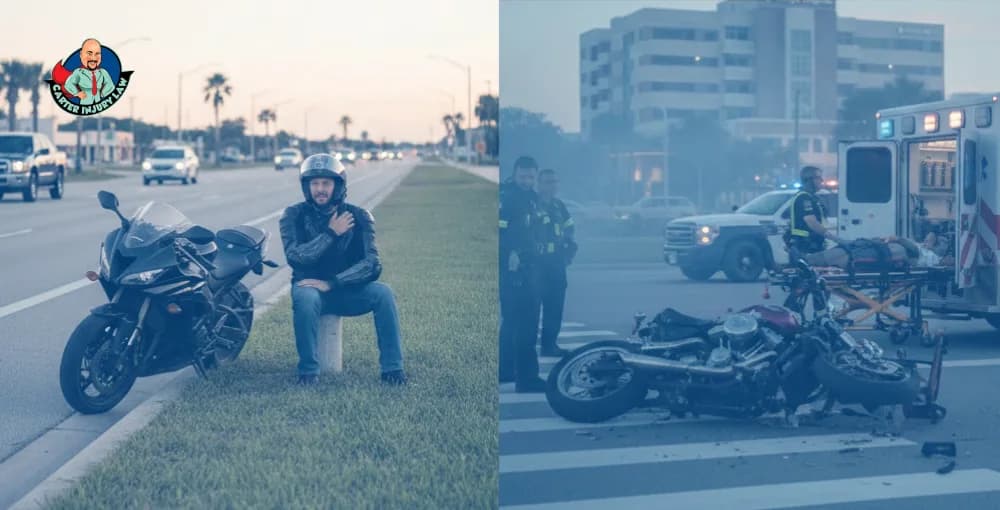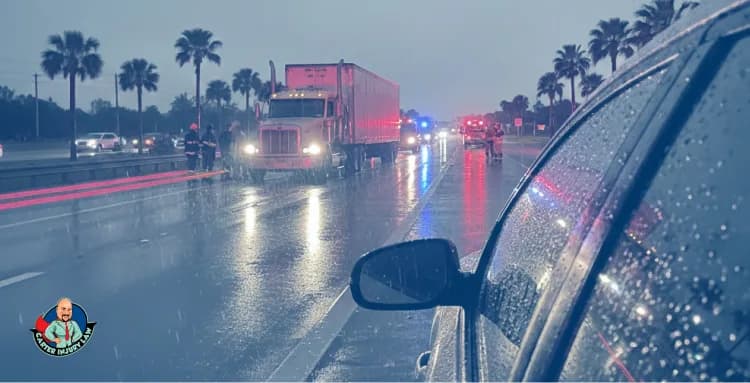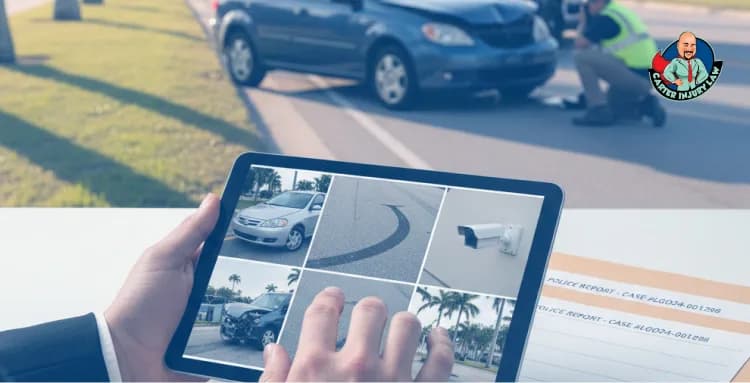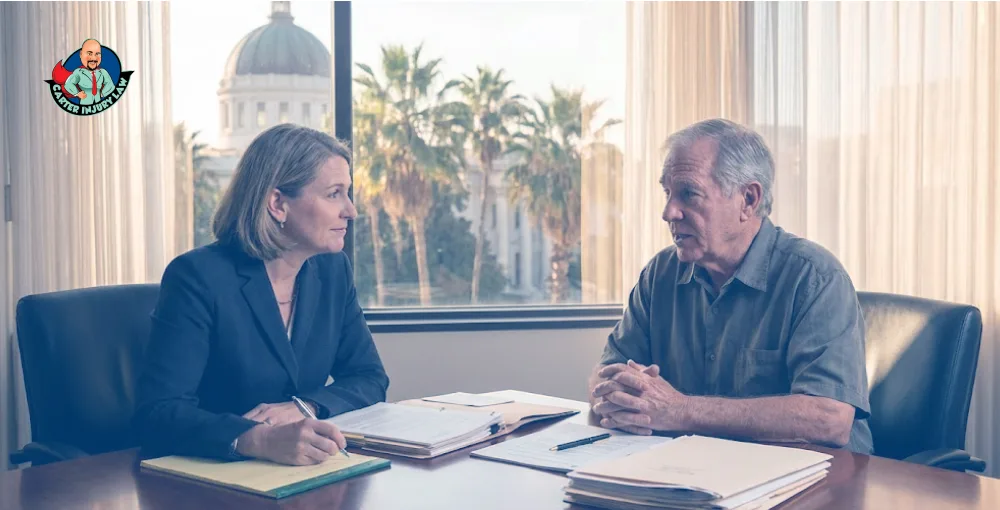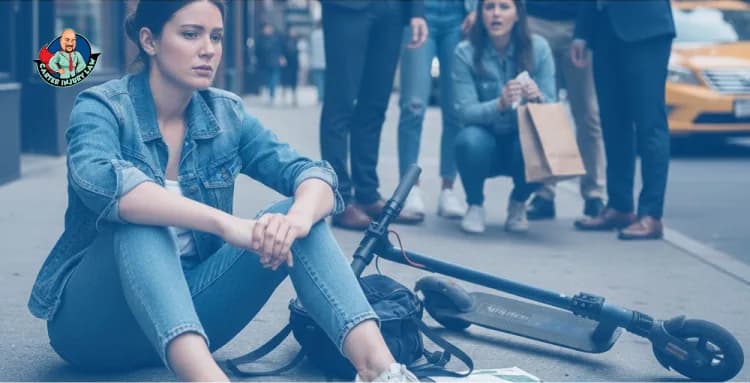Walking across a street should not be a gamble with your life. Yet in Florida, it often feels that way. The numbers alone tell a story of risk, of hurried intersections in Tampa, distracted drivers in Miami, and unmarked crosswalks in Orlando, where the ordinary act of crossing the road can turn into something fatal.
When a loved one is taken this way, families are left holding questions that have no easy answers. Was it just bad luck, or was it something more?
The truth is, how you answer that question can change everything.
1) When a Wrongful Death Claim Applies
In Florida, a wrongful death claim exists when the loss is not only tragic but preventable. If a driver acted carelessly, the law recognizes that families deserve more than silence.
Negligence can take many forms:
Texting while driving , a habit that still claims lives despite endless reminders. The National Highway Traffic Safety Administration reports that distracted driving killed 3,308 people in 2022 in the United States, and Florida is among the hardest hit.
Speeding through lights , ignoring the seconds that separate safety from disaster.
Running red lights , a problem that the Insurance Institute for Highway Safety notes leads to over 1,000 deaths nationwide each year.
Simple inattention , a glance away that costs a family everything.
What makes this difficult to bear is that even when criminal charges never appear, the family still has a path. Justice in these cases is not just about jail time. It is about accountability, about holding someone responsible so that loss is not treated as an afterthought. David Carter at Carter Injury Law speaks plainly about it, and you can hear him yourself in this short video.
2) Who Can Speak for the Loved One
The law in Florida does not leave the question of who may step forward to chance. It is clear, even if it feels heavy in the moment. A wrongful death claim must be filed by the personal representative of the estate, a role that carries both responsibility and weight. This person speaks for the loved one who can no longer speak and also for the family left behind.
The law outlines who may hold this position:
A surviving spouse , who often carries the closest bond and the deepest loss.
Parents , for whom the loss of a child, no matter the age, feels like a tearing out of time itself.
Adult children , who suddenly step into a place they never imagined, making decisions they once believed were decades away.
Someone appointed by the court , when no immediate family member is available or able to serve.
This representative becomes the bridge between memory and justice. They gather the story of what happened, the financial losses, and the emotional toll. They carry the duty of making sure that the life cut short is not treated as a statistic but as a voice that must still be heard in the courtroom.
The role can feel impossible. Families in grief are often in no condition to take on legal burdens, yet the system requires that someone step into that place. This is why many families lean on lawyers who know not only the law but also the way grief moves through a household. Without guidance, deadlines pass, opportunities slip away, and insurance companies grow stronger in their silence.
To understand who can file a claim is to begin understanding how the law tries, imperfectly, to put shape around loss. It is not about replacing what has been taken, because no law can do that. It is about ensuring that the absence left behind is recognized, measured, and answered, at least in part, by accountability.
3) Types of Compensation Available
When a wrongful death claim is filed, the question becomes not only who can speak for the loved one, but also what may be spoken for. The law in Florida recognizes that loss is not a single thing. It ripples outward, touching money, time, and the quietest corners of family life.
Funeral and burial costs are often the first and most immediate weight. Families should not have to bear the expense of saying goodbye when the death was caused by someone else’s negligence. Medical bills may follow for the care that was given in the moments before life slipped away. These are debts no one plans for, yet they arrive all the same.
Beyond the tangible bills is the loss of financial support. A spouse or parent may have been the steady source of income, the person who kept the household upright. When that income disappears, the absence is not only emotional but practical, showing up in rent, groceries, tuition, and the thousand small costs of daily living.
Florida law also allows families to seek damages for pain and suffering, a phrase that feels too thin for what it tries to contain. It covers the ache of children growing up without guidance, of partners lying awake in beds that now feel too large, of parents carrying the silence of a child they once expected to outlive them.
There is also recognition of companionship and guidance lost. A family is not only sustained by money but also by presence, by encouragement, and by the ordinary rituals of care that make up a life together. When these are taken, the law attempts to account for them, however imperfectly, through compensation.
The purpose is not to put a price tag on a life. It is to acknowledge that what has been lost is vast and that the family left behind should not carry the burden alone.
4) Why Every Life Leaves a Mark
A wrongful death claim is not only about pointing to what went wrong on the day of the accident. It is also about holding on to the threads of what would have continued if that driver had been more careful. A life is never just the moment it ended, it is the years that were still to come.
For many families, this is the heart of the matter. A parent is no longer there to guide a child through choices. A spouse is missing from the conversations that shape a home. A son or daughter is absent from the future their parents once imagined. These are not things that can be replaced, but they can be recognized in court.
To say a claim matters is to say the person mattered. It is a way of refusing to let their story be reduced to a statistic on Florida’s rising accident charts. It is a reminder to the driver, to the insurer, and to the community that every pedestrian killed was someone whose laughter filled a room, whose work carried meaning, and whose presence changed lives.
5) The Obstacles Grieving Families Encounter
After a pedestrian fatality, families often expect that the truth will speak for itself. But the reality is harder. Insurance companies step in quickly, and their priority is rarely compassion. They are trained to protect their bottom line, not the grieving household left behind.
Some of the most common challenges include:
Blame shifting , where the insurer suggests the pedestrian was careless, even when the evidence points elsewhere.
Minimizing losses , offering settlements that do not come close to covering funeral costs, medical bills, or the years of financial support a loved one would have provided.
Delays and denials , dragging out the process in the hope that families will give up under the pressure of grief and mounting expenses.
The weight of grief already makes it difficult to manage daily life. Add to that the complexity of legal deadlines, paperwork, and negotiations, and it becomes clear why so many families feel overwhelmed. This is not a process designed with tenderness in mind. It is designed for efficiency and cost-saving, often at the expense of justice.
6) Finding Support When the System Feels Cold
When the system feels tilted against grieving families, the role of an attorney is not just legal but human. Our focus is on bringing clarity to chaos and giving families space to grieve while the legal work is carried forward.
Here is what that looks like in practice:
Thorough investigations , gathering police reports, witness statements, and camera footage to uncover exactly what happened.
Expert witnesses , including accident reconstruction specialists, who can rebuild the scene and make clear what negligence occurred.
Storytelling in court , making sure the life of the loved one is not reduced to numbers but shown in its full weight and humanity.
Standing up to insurers , refusing to accept attempts to downplay loss or shift blame onto the victim.
Each of these steps serves the same purpose, to make sure a family’s pain is translated into a legal claim that is strong enough to stand before a judge or jury.
For families, the work is not only about the outcome but also about knowing someone is in their corner. It means they do not have to carry the burden of explaining, defending, and fighting for their loved one while also navigating grief.
At its heart, Carter Injury Law’s role is to make sure that accountability is not lost in paperwork and that justice, however imperfect, is pursued with the care and seriousness these cases demand. Reach out today for a free consultation. Let us help you find clarity, support, and a path forward when it feels impossible to take the next step alone.




